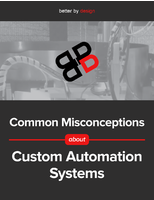IPC International Technology Roadmap takes new directions.
Share:
Press Release Summary:
The 2013 IPC International Technology Roadmap for Electronic Interconnections marks a shift that is occurring throughout the electronics industry: more cooperation and information sharing. One significant change is a greatly expanded section on printed electronics focusing on more realistic opportunities and challenges of the technology. Another change can be found in the environmental section, transformed and renamed the "stewardship" section.ÂÂ
Original Press Release:
IPC International Technology Roadmap Takes New Directions
Latest version delves into printed electronics and environmental issues
BANNOCKBURN, Ill., USA, — The recently released 2013 IPC International Technology Roadmap for Electronic Interconnections marks a shift that is occurring throughout the electronics industry: more cooperation and information sharing.
Published biennially in CD format, the nearly 600-page authoritative guide to interconnect technology trends was developed with input from subject matter experts around the globe. Noting the increase in shared information, Jack Fisher, president of Interconnect Technology Analysis, Inc. and chairman of the IPC Roadmap Executive Committee, was pleased with the cohesiveness among groups in developing this essential strategic planning document for the electronics manufacturing industry. “There was quite a bit of exchange between a number of electronics industry groups; we were focused on providing the best information for our respective constituencies with less concern on where the facts originated,” said Fisher.
The 2013 roadmap incorporates revealing data and comparisons to help users serve clients and/or guide their companies in identifying, selecting and developing the right technology alternatives to create the products needed for future markets.
One of the significant changes is a greatly expanded section on printed electronics focusing on more realistic opportunities and challenges of the technology. “Printed electronics has emerged as another viable option for some products,” Fisher added.
Another important change within the 2013 roadmap can be found in the environmental section, transformed and renamed the “stewardship” section. “Consumers have long embraced the green movement which prompted changes in the way companies view related environmental issues,” said Marc Carter, IPC director of technology transfer. “Market-savvy companies, in turn, can embrace these environmental issues as opportunities.”
In addition, the roadmap includes technical presentations made by industry experts within a special resource section used by the roadmap developers to provide predictions and visionary descriptions.
Though the IPC roadmap focuses on technology, it also addresses shifts in the business environment. The 2013 roadmap has an updated and expanded section addressing the changes in business models and expectations between OEMs, ODMs, EMS providers and fabricators, and the rise of contractor specialists for previously internal functions.
As the Roadmap Committee embarks on the development of the 2015 edition, the group invites anyone interested in helping make each successive release more comprehensive to join in its efforts. For details on getting involved, contact Marc Carter at MarcCarter@ipc.org or +1 847-597-2826.
IPC members may purchase 2013 IPC International Technology Roadmap for Electronic Interconnections for $125; the standard industry price is $250. For more information or to purchase the roadmap, visit www.ipc.org/roadmap.
About IPC
IPC (www.IPC.org) is a global industry association based in Bannockburn, Ill., dedicated to the competitive excellence and financial success of its 3,300 member companies which represent all facets of the electronics industry, including design, printed board manufacturing, electronics assembly and test. As a member-driven organization and leading source for industry standards, training, market research and public policy advocacy, IPC supports programs to meet the needs of an estimated $2.17 trillion global electronics industry. IPC maintains additional offices in Taos, N.M.; Arlington, Va.; Stockholm, Sweden; Moscow, Russia; Bangalore, India; Bangkok, Thailand; and Shanghai, Shenzhen, Chengdu, Suzhou and Beijing, China.




